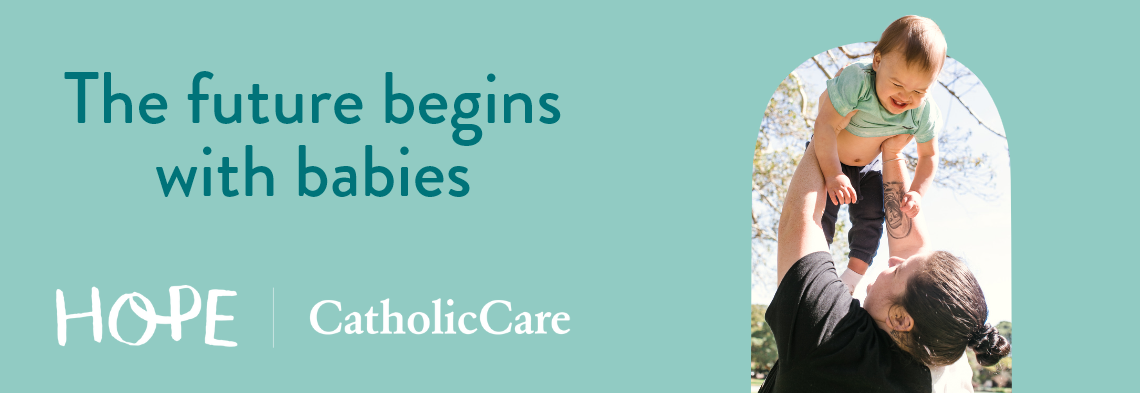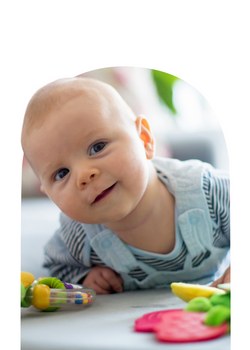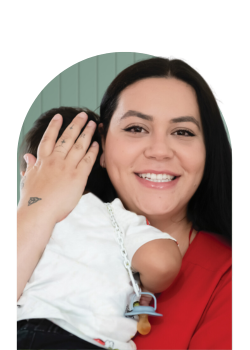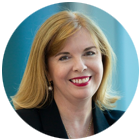
On this page:
Since the HOPE program began in 2019, it has helped over 180 young families in the Sydney area to stay together and build greater hope for the future.
Sadly, we know that too often young parents have missed out on secure and healthy early childhoods themselves, so HOPE has been carefully designed to provide young families with the right combination of supports to help break the cycle of intergenerational disadvantage.
The program is specifically planned to be a 12-month therapeutic program for at-risk young women with babies and children in their first 1000 days. The program aims to provide the young women with the support they need to heal from trauma, build their parenting skills and create a nurturing and safe home environment while also assisting them to make positive choices for their future.
In FY22:
Of the young women HOPE worked with in FY22:
Evidence from a broad spectrum of research shows us that development during the first 1000 days, from pregnancy until a child is two, lays the foundations for later learning, wellbeing, mental and physical health.
During this time, a baby’s neurological and physical development is shaped by their environment and experiences. The interactions and relationships they have with their parents and primary caregivers are critically important.
 Healthy early development, supported by nurturing and good relationships, makes it more likely that children will have happy, healthy, and bright futures.
Healthy early development, supported by nurturing and good relationships, makes it more likely that children will have happy, healthy, and bright futures.
Infants can experience trauma in environments that are unsafe, unsuitable, or unpredictable. This might be an environment where there is a lack of access to things such as sufficient support for parents, safe and stable housing, strong community networks or adequate income to cover the basics. It may include exposure to domestic and family violence or other forms of trauma in the home.
Early trauma can affect all aspects of development and functioning, including health and wellbeing, mental health, social functioning, and cognitive development.
The approach to parenting most adopted by new parents mimics that which they would have received as children. This can be helpful for those who received positive childhood experiences. However, often families with complex vulnerabilities may have done the very best they could with the resources they had but may have created unhelpful or harmful approaches to parenting.
The good news is that relationships also help children to recover from early trauma. More influential for the child than their early trauma is the quality and quantity of their safe relationships. This is an incredibly hopeful message from the research.
A referral to the HOPE Program helped Amelia move her young son Mateo from a distressing home life and opened her eyes to the ongoing traumatic environment they had been living in.
 “The HOPE Program is definitely helping me as a mum and as a person, and with my dreams of studying and getting the job I’ve always wanted. HOPE helped me get secure a bond, get into safe housing, and set me up with the other services I needed.
“The HOPE Program is definitely helping me as a mum and as a person, and with my dreams of studying and getting the job I’ve always wanted. HOPE helped me get secure a bond, get into safe housing, and set me up with the other services I needed.
I’m excited about my future, my son is a beautiful boy and doesn’t deserve a life of trauma, he deserves everything good in life and now I know I’m going to give him that.
Mateo loves motorbikes and cars and playing in the park and being with me, and I’m proud of being the best mum I can be for him. I didn’t know there was a way out of the way I had been living and the bad situation I was in, HOPE helped me see it wasn’t normal and I didn’t need to live in fear of losing my child.
HOPE has helped me break the cycle, I’m definitely making progress and I can take a step back and breathe... having my Family Worker there, like a second pair of hands, helps me and she encourages me and reminds me that I am doing well.
I’m more available to my child because I am not as stressed about things, I’m more attentive instead of worrying about money or getting a job — my Family Worker has helped me get
these things sorted. Things are going well, it had been a big struggle, but things have started to take a turn, finally, I have a job, Mateo is settled into daycare, and things are falling into place.
My son is smashing his milestones, he is just perfect. I want him to know he is loved, he is worthy, and I am feeling really good about his future.”
Around the world, investing in women has a proven multiplier effect. Women and girls use the knowledge and skills they develop to benefit their families, communities, and countries, not just for their own personal profit.
Yet women still face many barriers to equality of opportunity to create healthy and secure lives for themselves and their families.
Research also tells us that half of all female sole parents and their children don’t earn enough to support their families and rely on government payments as their main financial support.
HOPE young families are amongst the lowest income families in the community.
We celebrate financial and in-kind support made during the Financial Year 2022 (July 2021 – June 2022) and offer our heartfelt thanks to each of our incredibly generous supporters for making it possible to carry out this work.
Charitable Foundations
Curran Access Children’s Foundation
Charitable Works Fund
Betty Wade Charitable Foundation
Corporate
AccessEAP
Jemena
Individuals and Family Foundations
Phillips Family Foundation
The Harris Family
Eureka Benevolent Foundation
Edwin and Nil
Karen and Matthew Hope
D’Leanne Lewis
Government
NSW Health
Community Housing Providers
Amelie Housing
Hume Community Housing
Metro Community Housing
Community
Mummies Paying it Forward
Dandelion Support Network
How you can helpIn the next three years our aim is to support 300+ HOPE young families.For each young family who participates in the 12-month program, we need to raise $25,000 which covers the cost of all aspects of the program. Here are some ways that you can create opportunities for our shared community.
|
For further information or talk about the opportunities within the HOPE Program contact Julie Toma below.

Julie Toma
Executive Director
Marketing, Communications & Philanthropic Engagement
02 9509 1111
julie.toma@catholiccare.org